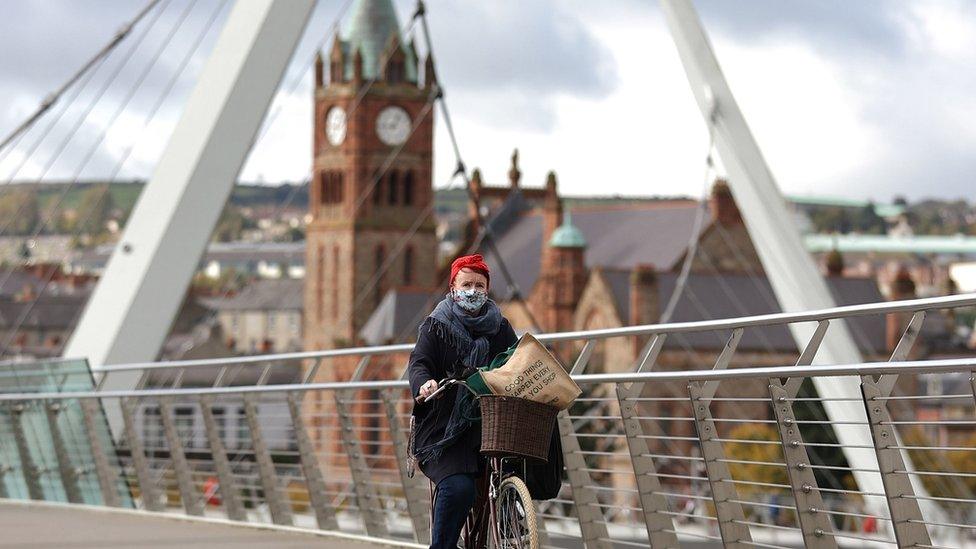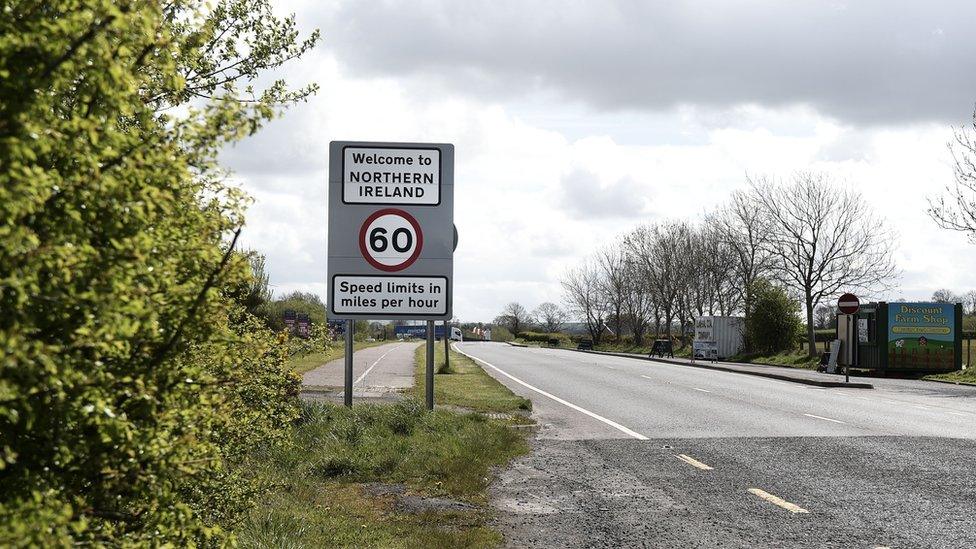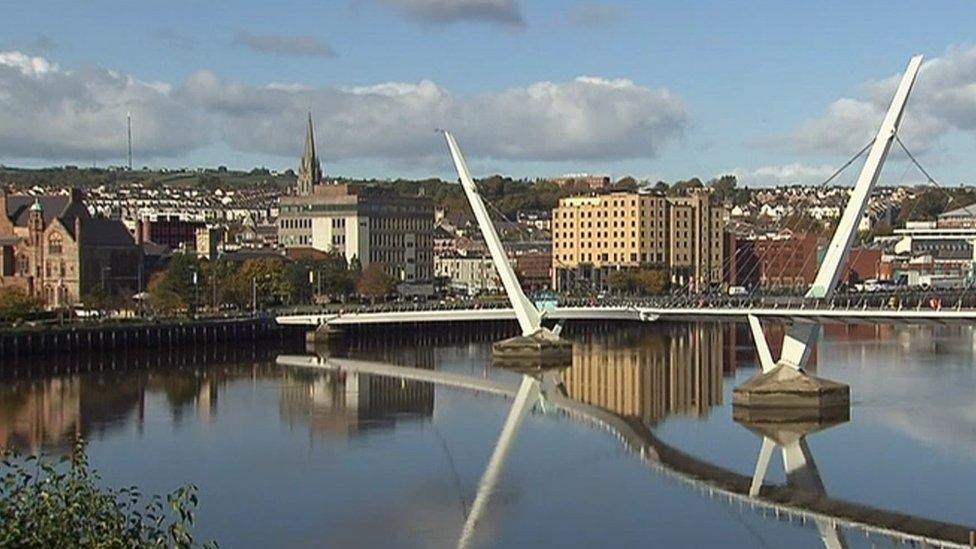Covid-19: Concern over north west infection rate rise
- Published

The Derry City and Strabane council area's rate of infection is three times higher than the Northern Ireland rate
Covid-19 infection rates in the north west may rise further as lockdown is eased at different times on either side of the border, doctors have warned.
According to BBC figures the infection rate in the Derry and Strabane council area is the UK's highest.
As of 15 April the infection rate was 114 per 100,000 people.
However, this is much lower than in October 2020 when a rate of 635 per 100,000 made Derry and Strabane the UK's highest area for infection.
Dr Tom Black of the British Medical Association (BMA) said the rate could rise further as restrictions are eased.
"There will be people coming across the border for non-essential retail," Dr Black told BBC News NI
"We also have the risk of hospitality attracting more, and the more movement, the more mixing, the higher the infection rate."
Non-essential retail is due to reopen in Northern Ireland on 30 April.
Unlicensed and licensed hospitality premises are scheduled to also open on 30 April - but they will only be allowed to operate outdoors.
In the Republic of Ireland there are no defined dates for the lifting of restrictions at present.
Dr Black said success in bringing the infection rate down may also have given rise to some degree of public complacency.

Thousands of people cross between NI and the Republic of Ireland daily
The north west is a region where many residents live their lives on both sides of the border.
Dr Denis McCauley, chairman of the Irish Medical Organisation's GP sub-committee, said that has been apparent since the beginning the Covid-19 crisis.
"There is a natural hinterland a natural mixing in cross border areas, such as Derry and north Donegal - that mixing has never really stopped," he said.
"That's a fact rather than an actual judgement."
According to the latest figures, the Derry and Strabane rate of infection is three times that of the rate in Northern Ireland as a whole.
As of 15 April the Northern Ireland infection rate was 34 per 100,000 people.
The latest BBC data unit figures show most cases are in the under-40s, an age group who are only starting to be vaccinated in Northern Ireland.
Related topics
- Published29 September 2020
